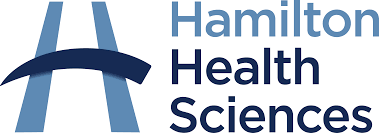Hamilton Health Sciences (HHS) supports our care teams with the following workshop opportunities. Health professional colleagues with other organizations are welcome to contact hhs-education@hhsc.ca to learn more about attending our workshops.
For HHS Staff: log into your Citrix account and visit the Learners’ site for workshop-specific schedules, registration and resources.
Advanced Cardiac Life Support (ACLS)
A video-based, certified ACLS instructor-led, advanced course, building on the foundation of basic life support (BLS) skills. It emphasizes the importance of continuous, high-quality CPR and takes healthcare provider training to the next level – highlighting the importance of high-performing team dynamics and communication, systems of care, recognition and intervention of cardiopulmonary arrest, immediate post-cardiac arrest care, acute dysrhythmia, stroke and acute coronary syndromes. The use of CPR simulation is incorporated into the course to provide real-time feedback on the effectiveness of CPR. This course uses curriculum and vigorous practice guidelines from the Heart & Stroke Foundation.
Advanced Trauma Life Support (ATLS)
Advanced Trauma Life Support (ATLS) 1.5 Day Hybrid Course
Day 1: 5:00 pm – 10:00 pm – Interactive on line learning session lead by the course director
Day 2: 08:30 – 6:00 pm – Hands on learning session, with simulation, 4:1 student/instructor ratio
Basic Life Support (BLS) Workshop
A foundational emergency cardiovascular course for all health professionals and first responders intended to help improve patient outcomes. BLS teaches both single-rescuer and team basic life support skills for application in pre-hospital and in-facility settings. Current BLS status is a pre-requisite for advanced and intermediary resuscitation courses. This course uses curriculum from the Heart & Stroke Foundation, and HHS offers BOTH the recertification and full BLS course.
Central Vascular Access Device (CVAD) Workshop
An interactive, multimodal education event for both new learners and those who wish to refresh their CVAD knowledge and skills. Learners will have the opportunity to practice techniques relevant to care and maintenance of central venous access devices including type of devices, dressing changes, blood sampling, blood cultures, locking and flushing.
The Canadian Triage & Acuity Scale (CTAS)
The Canadian Triage & Acuity Scale (CTAS) is a tool that enables Emergency Departments (ED) to:
- Prioritize patient care and access requirements
- Examine patient flow and care processes
- Complement other workload, case mix, and resource requirement measures
This 8 hour workshop helps support ED nurses and physicians to:
- Triage patients according to acuity, risk, and care needs based on their presenting signs and symptoms
- Ensure that the sickest and highest risk patients are seen first when ED capacity has been exceeded
- Reassess patients required to wait for a treatment space
At the end of the course you will be able to:
- Describe the historical origins and role of triage.
- Review and enhance your patient assessment skills.
- Apply professional standards of emergency nursing practice to triage.
- Introduce and utilize the CEDIS Presenting Complaint List.
- Prioritize patient care base on the Canadian Triage Acuity Scale (CTAS).
- Demonstrate and understanding of patient flow, care processes and communication in the Emergency Department (ED).
Gentle Persuasive Approach (GPA) Workshop
This is a one-day interactive, evidence-based workshop designed for delivery to staff from all departments. The overall goal of this workshop is to educate staff to use a person-centred, compassionate and gentle persuasive approach when responding to challenging behaviours associated with dementia and delirium.
There are four modules including an introduction that covers the principles of person-centred care and the meaning behind behavior, the impact of dementia and delirium on the brain, effective communication strategies, and finally some suitable and respectful self-protective physical techniques and body containment strategies that can be used to manage more catastrophic behaviours. A GPA certificate of participation is provided.
Preceptor Workshop
This 8 hour workshop prepares new and potential preceptors for roles working with new staff/learners. Based on the principles of adult learning, the workshop is interactive, grounded in concrete tools and incorporates participant experience and knowledge. A variety of modalities are used to facilitate learning including; large and small group discussion, video, scenarios, hands-on activities, lectures, and both individual and group reflection.
Skin Wound & Ostomy (SWO) Workshop
Learners will have the opportunity to review content and practice techniques relevant to basic and advanced wound care practices. Wound assessment, wound bed preparation, dressing selection, ostomy care, Negative Pressure Wound Therapy, therapeutic surfaces, staging, fecal incontinence management, incontinence associate dermatitis and foot ulcers are explored.
Vascular Access Therapy (VAT) Workshop
A four-hour workshop providing hands-on experience with venipuncture and IV insertion.
